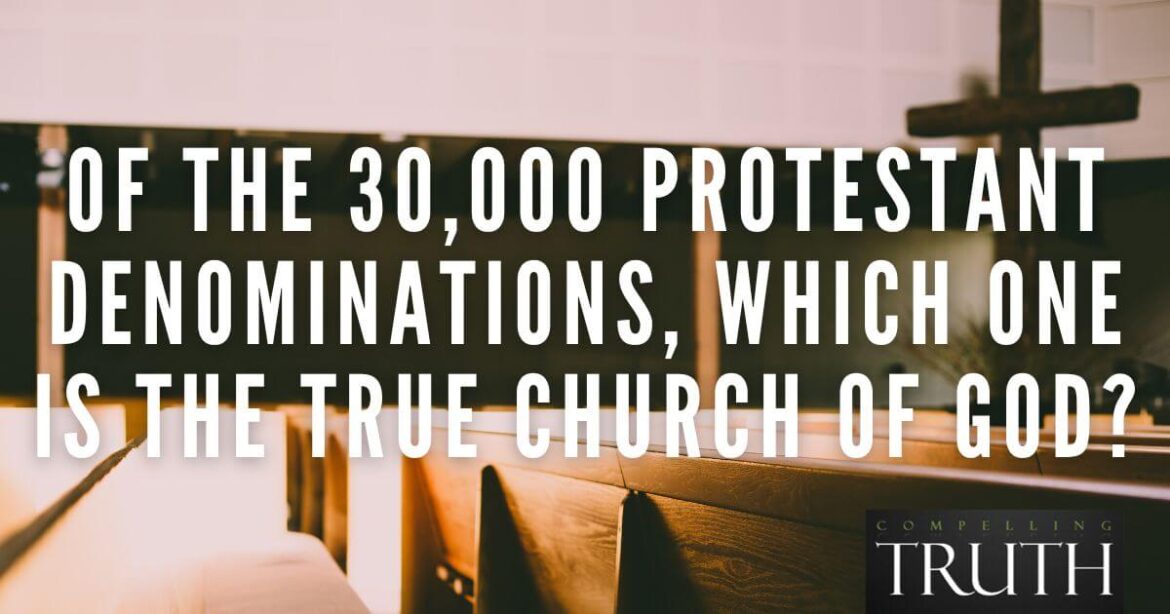The tapestry of Christianity is woven with a myriad of strands, each representing diverse beliefs, practices, and interpretations of faith. Among these strands, the Baptist Church occupies a distinctive place within the broader category of Protestantism. To ascertain whether the Baptist Church is Protestant, it is essential to delve beyond simple categorization and explore the historical, theological, and cultural tapestry that informs its identity.
The genesis of Protestantism arose in the tumultuous waters of the Reformation during the 16th century. Figures such as Martin Luther and John Calvin cast off the religious shackles of the Roman Catholic Church, advocating for salvation through faith alone, the priesthood of all believers, and the authority of Scripture. This monumental shift laid the groundwork for a plethora of denominations that would emerge in subsequent centuries, including the Baptists. The Baptist tradition, which crystallized in the 17th century, zealously adheres to Reformation principles, thereby firmly embedding itself within the Protestant framework. Like a robust tree with deep roots, the Baptist branch thrives on the soil of Protestant thought.
At the heart of Baptist theology lies the concept of believer’s baptism, a striking distinction that sets it apart from other Protestant denominations. Baptists believe in full immersion as a symbolic act of obedience and public declaration of faith, which is reserved for individuals who are capable of making an informed commitment to Jesus Christ. This doctrine resonates with the core Protestant idea of personal faith, signifying not merely a transition through ritual but a profound, transformative experience. In their view, baptism is akin to a radiant sunrise, illuminating the path of a believer’s journey rather than merely marking the commencement of a religious routine.
Furthermore, the autonomous nature of Baptist congregations exemplifies its distinctiveness within the Protestant realm. Each Baptist church operates independently, governed by local leadership and congregational decisions rather than a centralized hierarchy. This autonomy harkens back to the early church’s model and reflects the deeply ingrained belief in the priesthood of all believers. Such a decentralized structure allows for a rich diversity in practice and expression, akin to a symphony where each instrument plays its unique melody while contributing to a cohesive harmony. This underscores a vital aspect of Baptist identity; despite being part of the wider Protestant movement, each congregation reverberates with its own tonal quality.
In exploring the relationship between Baptists and other Protestant denominations, it becomes apparent that while common doctrinal threads exist—such as the authority of Scripture and justification by faith—nuances abound. For instance, many Protestant denominations practice infant baptism, an approach that Baptists vehemently oppose because they contend that baptism should only follow a conscious acceptance of Christ. This difference epitomizes a broader theological terrain where Baptists stand resolutely apart, advocating fiercely for the autonomy of the individual conscience in matters of faith. This doctrinal divergence reiterates the profound depth and complexity of the Protestant tradition, where ideological distinctions can often be as significant as shared beliefs.
Moreover, the ethos of Baptist churches often emphasizes evangelism and missionary work. Baptists understand their faith as a call to spread the gospel—an unyielding imperative akin to a vibrant beacon of hope in a world rife with uncertainty. Through fervent outreach programs and community engagement, they seek to embody the Great Commission, ensuring that the light of Christ radiates through the corners of the earth. This missional aspect situates Baptists firmly within the global Protestant narrative, where a shared responsibility to proclaim faith remains a cornerstone of identity.
In terms of worship style, Baptist congregations are characterized by a dynamic range—from the contemplative and reverent to the exuberant and spirited. This plurality illustrates the adaptability of the Baptist identity, capable of resonating with various cultural contexts while remaining steadfast in core theological beliefs. Whether one finds themselves in a quiet, introspective service or a lively, guitar-laden celebration of faith, the essence of worship remains a collective endeavor to glorify God—an act that reaffirms solidarity within the broader Protestant family.
In juxtaposition to the rich ethnic and cultural diversity found within Baptist churches is the poignant interplay of tradition and innovation. Baptists are known for their willingness to engage contemporary societal issues, navigating the waters of modernity with the same vigor that their ancestors exhibited during the Reformation. This forward-thinking approach engenders a unique appeal, allowing Baptist congregations to remain relevant and responsive while holding fast to their historical roots. Much like a sturdy ship sailing through turbulent seas, the Baptist identity balances tradition with necessity, steering clear of the shallow shores of irrelevance.
In conclusion, the Baptist Church is indeed a Protestant denomination, intricately entwined with the larger narrative of Christian history. The diversity within its theological frameworks, worship practices, and ecclesiastical governance showcases the dynamic nature of its identity—reflecting the ever-evolving journey of faith. The unique appeal of the Baptist tradition lies in its steadfast commitment to individual conscience, believer’s baptism, and the autonomy of local congregations. Like a masterpiece painted on the expansive canvas of Protestantism, the Baptist Church exemplifies a vibrant blend of historical heritage and contemporary relevance, forever contributing to the rich tapestry of Christianity.



